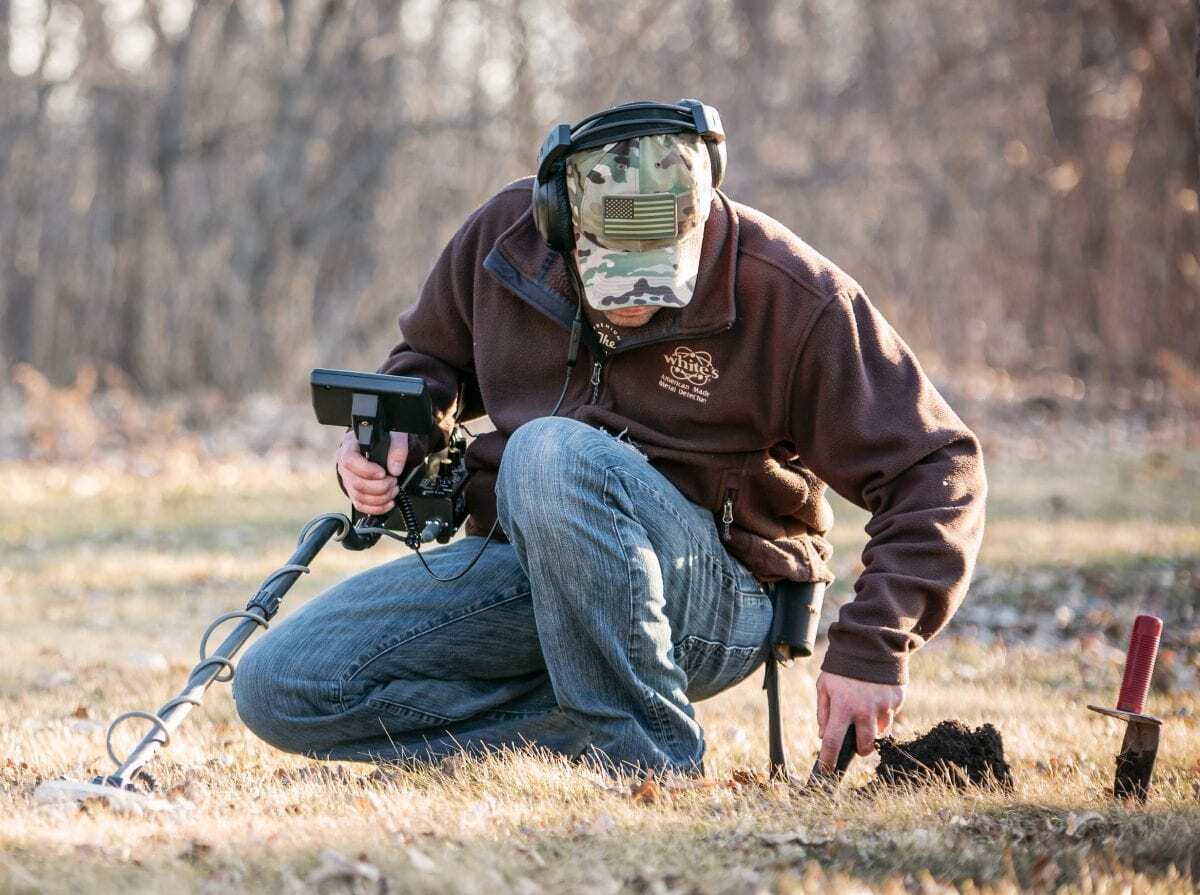Tourists from the US, Australia and Canada are paying thousands of pounds to hunt for treasure on historical sites across the UK using metal detectors.
The controversial hobby saw popularity increase after the highly acclaimed BBC comedy series “The Detectorists” was broadcast starring Mackenzie Crook and Toby Jones.
Specialist tour operators have since carved out a niche industry by arranging tour package holidays with access adjacent to historical monuments for treasure hunters.
Metal Detecting Holidays, one such operator states on its website; “With fortified monuments, castles and other outstanding historical places to visit, our metal detecting vacations on the border offer a very high potential for finds. “
The website goes as far as vaguely stating that treasure hunters will be detecting in areas of Bronze age settlements and enclosures, Roman camps and a landscape where battles between the English and Welsh were fought on the borders.
Lax local laws mean that tourism detectorists can remove their trophy finds from the UK, provided that an export license has been submitted for items over 50 years old. In contrast, many EU countries have strict rules on metal detecting, either banning or heavily regulating the hobby to prevent abuse and damage by digging into the archaeological context.
The rules in England and Wales are reliant on detectorists to voluntarily report finds to the Portable Antiquities Scheme and adhere to suggested volunteer guidelines. Finds that qualify as treasure are required by law to be reported under the Treasure Act of 1996.
Whilst a majority of the UK metal detecting communities behave responsibly and work closely with archaeologists, a study by Oxford Archaeology between 2007-2008 reported that 1.5 archaeological sites a month in the UK are plundered by illegal metal detectorists “Nighthawks”.
- In June 2018, criminal Nighthawks damaged the world-famous Hadrian’s Wall by digging 50 exploratory holes around the monument in search of treasure. – Link
- In November 2018, four metal detectorists were charged after ‘uncovering haul of Anglo-Saxon and Viking treasure and selling it on the black market’ – Link
The impact of detectorist tourism opens a moral debate about the removal of localised culture for personal gain, essentially selling off a piece of history to those with the largest wallets. Arguably a UK detectorists from a local club that abides by guidelines is more likely to be concerned about the heritage on their doorstep, often displaying their collections for further study or donating important finds to museums and heritage centres.
Whilst there’s nothing illegal in detectorist tourism, comparisons of the practice can be made to the sport of trophy hunting in places like Africa. If you’ve got the money to spend, you can bag yourself that trophy lion to stuff and place its head above your fireplace.
Chris Langston who operates Metal Detecting Holidays told the Times “I’ve been detecting for six or seven years and realised I wanted to make a business out of it; give Americans their bucket-list holiday of a lifetime.”
Metal Detecting Holidays website states “After the holiday has ended you are required to put all your finds over 50 years old in a protective container with your details on it. We will then examine your finds and then apply on your behalf for the export license. If any of the artefacts are of greater importance then they can be taken into the local Finds Liason Officer where experts will ID and record the item giving you a greater depth of information.”
This opens questions above self-regulation, essentially the tour operators are accountable only to themselves to ensure finds discovered by their tourist detectorists are reported. Any legal statement to ensure tourist detectorists abide by the UK guidelines, or accountability by Metal Detecting Holidays and other operators to police treasure hunters using their services is vague and arguably open to abuse as the fledgeling detector tourism industry grows in the UK.





